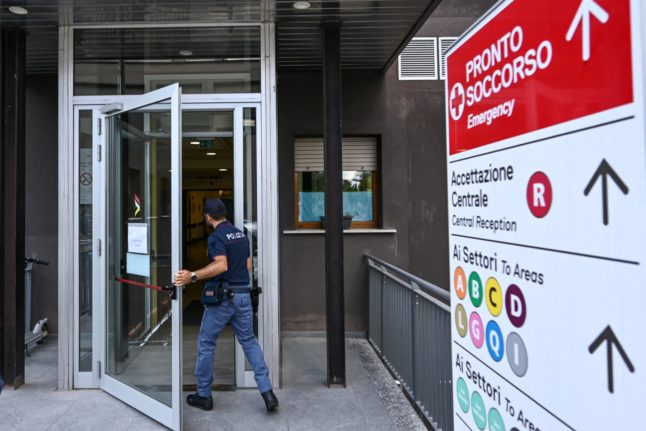In the past few months, there has been a lot of concern over healthcare costs for international residents in Italy.
The Italian government confirmed in January that it would go ahead with introducing a planned minimum charge of 2,000 euros annually for using the Italian national health service (Servizio Sanitario Nazionale, or SSN).
Since then, the UK government has clarified that the measure would not apply to British nationals who became residents in the country before January 1st 2021 and are covered by the post-Brexit Withdrawal Agreement (WA).
The British government said at the time it would publish any updates with details as to how the rules would work. But there have since been no further announcements from the Italian authorities, leaving some Britons in the dark.
For Graham Beresford, a UK national living in Penne, Abruzzo, this couldn’t be any truer. Graham became a resident in Italy on January 15th 2019, meaning in spite of the vague new rules, he is eligible for free healthcare as he has been here for over five years.
READ ALSO: Why Brits in Italy say they’ve been ‘hung out to dry’ over €2K healthcare fee
Obtaining healthcare hasn’t been as straightforward as it should have been for Graham in the time he has lived in Penne: he’s had delays with all of his health cards, paid more into the SSN than he should have done, and has been asked to produce documents such as translated bank statements to his local healthcare office (Azienda Sanitaria Locale, or ASL) even though it’s not on the list of documents required.
On top of all of this, Graham has blood cancer.
“Every time I go to my ASL office, I always feel like I’m dismissed,” Graham says. “I told the ASL worker I need medication for my cancer and she replied lots of people come in here with sob stories.
“There genuinely seems to be no compassion whatsoever.”
Graham said the UK government announcement has made little difference to him yet – his ASL has yet to implement any changes and is requesting he pay the 2,000-euro charge. It just so happens Graham’s health card (tessera sanitaria) recently expired.
All of this, he says, would be made easier if the central government would make an announcement to all ASL offices in the country and if the police headquarters in his region would allow him to change his temporary permit card (carta di soggiorno) to a permanent one.
“They (the police headquarters) aren’t letting me change my carta di soggiorno to a permanent one at the moment because I got my temporary one late last year and they said I have to wait for that to expire,” he continues.
READ ALSO: Trouble proving residency rights leaves Brits in Italy paying €2k health charge
“I said that wasn’t true because, regardless of the expiration date, I’ve been here for over five years meaning under the law I should be entitled to free healthcare.”
Graham feels completely alone in trying to get help from authorities. He’s written to and liaised with the local mayor, community lawyers, the local police and the British Embassy. He also mentions none of his PEC emails get answered by his ASL office either.
To make matters worse, he only has two weeks left until his blood cancer medication completely runs out.
“I have to take my medicine or it could be bad,” he adds. “I came here because I wanted to live a good life, not a nightmare. It’s been four years of this drama. It’s a nightmare.”
“It’s a life and death situation and I’m sure I’m not the only one. I just feel stuck.”
Other Britons have taken to social media to describe their rising panic over the lack of clarity around the rules.
One member of a British in Italy group wrote: “We paid up this January for our health cards, got them, and now we’ve been sent a letter saying we must pay 2,000 euros each by the end of April.
“What a joke this place is becoming.”
For people like Graham however, it is not only a question of money – it’s a question of his health.



 Please whitelist us to continue reading.
Please whitelist us to continue reading.
Member comments